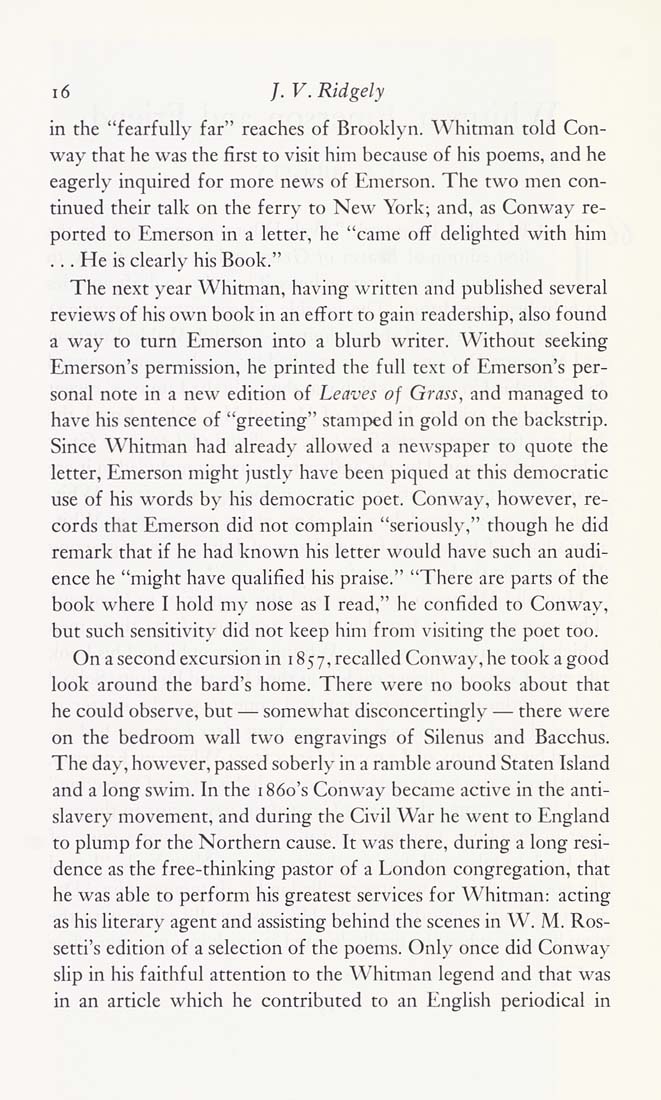Columbia Library columns (v.10(1960Nov-1961May))
(New York : Friends of the Columbia Libraries. )
|
||
|
|
|
|
| v.10,no.1(1960:Nov): Page 16 |

16 J. V. Ridgely in the "fearfully far" reaches of Brookl)n. Whitman told Con¬ way that he was the first to visit him because of his poems, and he eagerly inquired for more news of Emerson. The two men con¬ tinued their talk on the ferry to New York; and, as Conway re¬ ported to Emerson in a letter, he "came off delighted with him . .. He is clearly his Book." The next year Whitman, having written and published several reviews of his own book in an effort to gain readership, also found a way to turn Emerson into a blurb writer. Without seeking Emerson's permission, he printed the full text of Emerson's per¬ sonal note in a new edition of Leaves of Grass, and managed to have his sentence of "greeting" stamped in gold on the backstrip. Since Whitman had already allowed a newspaper to quote the letter, Emerson might justly have been piqued at this democratic use of his words by his democratic poet. Conway, howevet, re¬ cords that Emerson did not complain "seriously," though he did remark that if he had known his letter would have such an audi¬ ence he "might have qualified his praise." "There are parts of the book where I hold my nose as I read," he confided to Conway, but such sensitivity did not keep him from visiting the poet too. On a second excursion in 1857, recalled Conway, he took a good look around the bard's home. There were no books about that he could observe, but — somewhat disconcertingly — there were on the bedroom wall two engravings of Silenus and Bacchus. The day, however, passed soberly in a ramble around Staten Island and a long swim. In the i86o's Conway became active in the anti- slaveiy movement, and during the Civil Wat he went to England to plump for the Northern cause. It was there, during a long resi¬ dence as the free-thinking pastor of a London congregation, that he was able to perform his greatest services for Whitman: acting as his literary agent and assisting behind the scenes in W. M. Ros- setti's edition of a selection of the poems. Only once did Conway slip in his faithful attention to the Whitman legend and that was in an article which he contiibuted to an English periodical in |
| v.10,no.1(1960:Nov): Page 16 |







